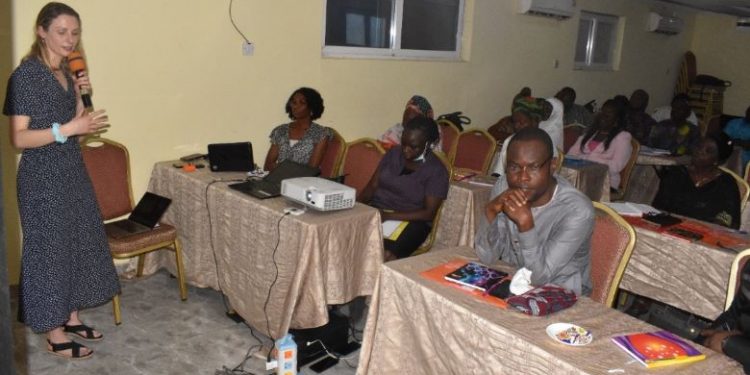Education stakeholders have called for continuous training and retraining of teachers in Lagos State to enable them to meet up with the global standard of teaching.
The state government was also tasked to ensure the availability of the Teachers’ Code of Conduct by the Teachers Registration Council of Nigeria, in school, to ensure teachers comply with the provisions of the code, thereby improving teaching outcomes in the state.
These recommendations were made by Education Stakeholders at the end of a two-day Stakeholders Consultative meeting on sustainable financing for the teaching profession in Lagos state organized by ActionAid Nigeria in collaboration with Human Development Initiative, HDI, a Non-Governmental organization.
Mrs. Kyauta Giwa, National Coordinator of Breaking Barrier, Tax Justice and Gender Responsive Public Service Project of ActionAid Nigeria, who commended the present administration in Lagos for improving the welfare of teachers, also clamored for the construction and rehabilitation of more schools in the rural areas to curb overcrowding in public schools.
Stressing the need for improving the delivery of Inclusive Education in the State, Mrs. Giwa mentioned that “inclusive education is not about building ramps only, it also includes the availability of accessible teaching materials, positive attitudes to children with disabilities among others.”
She also highlighted the importance of reviewing the existing Inclusive Education policy in Lagos State, adding that it would help to improve the delivery of inclusive education in all schools across the state.
A Researcher from the University of London, Ms. Lynsey Robinson, while delivering research findings on the “historical analysis of inequalities in an education system with shifting roles for the private sector: A study of 3 states in Nigeria” noted that proliferation of private schools in Lagos is the major factors impeding development in public schools.
Ms. Robinson canvassed for more funding and an increase in the budget size of Education both at the State and National levels.
The Education stakeholders who attended the meeting were drawn from Ministries and Agencies of Government, Civil Society Organisations, the Nigerian Union of Teachers, Education Districts, the School-Based Management Committee, School Principals and Teachers, Safe Space facilitators, and the Media.

